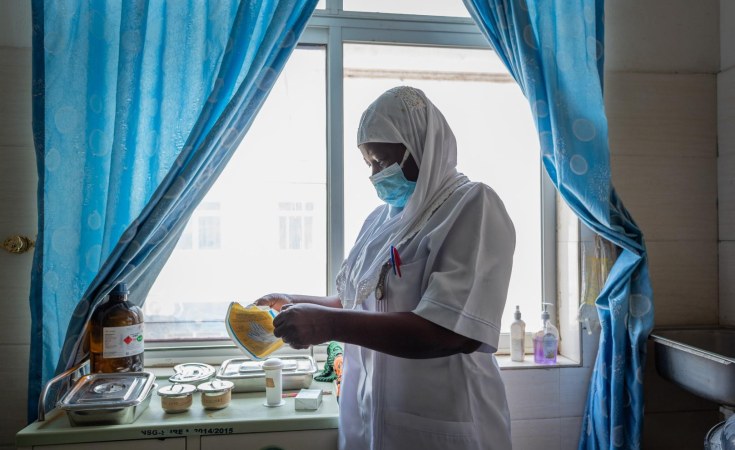Distinguished guests, dear colleagues, and friends,
Thank you for all joining us to mark this Day of Action for Cervical Cancer Elimination.
On this day three years ago, we made history as we launched the Global Strategy to Accelerate the Elimination of Cervical Cancer as a Public Health Problem.
You helped us to launch the strategy with a day of action, mobilizing service delivery campaigns, announcing new commitments, and raising awareness in communities around the world.
That has since developed into a robust global movement.
Today, countries around the world are lighting up monuments in teal, but more importantly, they are making bold commitments.
I commend Belize for introducing HPV screening in its public health system, and I thank Her Excellency First Lady Briceño for her leadership.
There are many other examples.
Benin is organizing a nationwide campaign over the next 7 days to raise awareness and expand screening.
Australia is aiming to become the first country to eliminate cervical cancer, with the launch of its national elimination strategy today.
Indonesia this week also announced its national elimination plan.
In Norway, researchers recently reported finding no cases of cervical cancer among 25-year-old women, the first cohort who received the HPV vaccine as children.
Rwanda has rapidly expanded vaccination and testing, also putting it on track for elimination.
Other countries are further behind, but are taking their first steps.
In the Democratic Republic of the Congo today, the Ministry of Health is coordinating a march with women's associations across Kinshasa, pledging their commitment to the WHO call for action.
The Global Strategy set ambitious yet achievable targets for 2030:
To vaccinate 90% of girls; screen 70% of women and treat 90% of those with cervical cancer.
In the last three years, we have made significant progress.
Access to vaccines is improving steadily. Five manufacturers are now making licensed HPV vaccines, and production capacity has increased.
Since we launched the initiative, 58 more countries have included the HPV vaccine in their routine immunization programs, for a total of 140 countries.
I congratulate all countries that introduced the HPV vaccine this year, including some with very large populations, such as Bangladesh and Nigeria.
I thank our partners Gavi, Unicef and the Bill & Melinda Gates Foundation for their support.
As a result of this year's vaccine introductions, millions more children can look forward to a future protected against cervical cancer.
Recently, we found that a single dose of HPV vaccine can be protective. That has been a game changer. With just one dose, countries can now vaccinate more young people, more efficiently.
On screening, the news is less positive. We are lagging behind.
However, this year, with support from Unitaid, Pepfar and other partners, ministries of health in 14 low- and middle-income countries screened over a million women.
To enhance screening quality, reduce costs, and broaden access to health services, WHO now recommends HPV testing as the preferred method for cervical cancer screening.
This includes for women living with HIV who require more frequent screening due to their 6-fold higher risk of developing cervical cancer.
Using approaches such as self-sampling makes screening even more convenient.
We have also been engaging with innovators, including on point-of-care tests and artificial intelligence-based technologies.
For treating those diagnosed with cervical cancer, we still have a lot to do.
In most countries, we still need better access to surgery, radiotherapy, chemotherapy and palliative care.
Allow me to leave you with three thoughts.
First, women in poorer countries, and poor and marginalized women in richer countries, still suffer unfairly from cervical cancer.
We must redesign strategies for prevention, screening, and treatment to reach everyone, especially those at higher risk, including women living with HIV. HPV vaccines and tests should be affordable for all.
Second, we urge countries to realize their promise to eliminate cervical cancer, backed by political and financial commitments, as part of their commitment to universal health coverage.
And third, we urge partners to increase their support. Now is the time to double down, with concerted action.
Thank you all for your dedication, passion, and participation in this global movement.
Together, we can fulfil our vision for a world free of cervical cancer.
I thank you.


